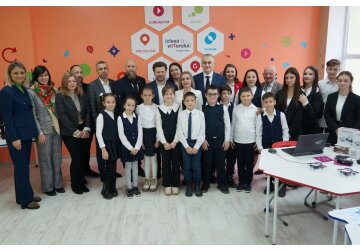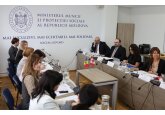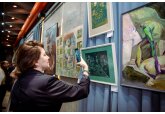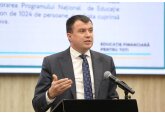
The "Class of the Future" was opened in Comrat Lyceum named after N. Tretyakov
The Russian-language lyceum in the capital of Gagauzia, where 780 schoolchildren study, has become part of a large project "Class of the Future", which is being implemented within the framework of cooperation between the Ministry of Education and Research, local authorities, the Future Technologies (FTA) project, funded by USAID Moldova, Sweden and the United Kingdom, as well as the Ukraine-Moldova American Enterprise Fund and coordinated by the National Center for Digital Innovation in Education. In the new educational space, equipped with advanced technologies, the educational process will be transformed. Drones, robots, 3D printers, a digital microscope and VR glasses will allow students to gain knowledge in an interactive form. This equipment will allow integrating innovative practices in education. The lyceum is also a beneficiary of the Gigabit Internet program, which provides high-performance Internet connection, thanks to a partnership with StarNet. The opening of the "Class of the Future" was attended by the Minister of Education and Research Dan Perciun, who also handed over to the educational institution a new school bus, donated by the Romanian government for transporting children coming to the Lyceum from other localities. Dan Perciun recalled that 69 buses were purchased with the support of Romania, 1 of which was handed over to the N. Tretyakov Lyceum. "Class of the Future" is a digital education project implemented in educational institutions in Moldova and brings a new concept of pedagogy: it offers an open and motivational learning space with interdisciplinary and innovative approaches that involve the use of digital technologies that promote student-centered learning. The project was launched in 2017 based on the Future Classroom Lab model of the European Schoolnet organization and today covers more than 40 educational institutions across the country. Educational institutions included in the project receive digital equipment, professional training courses, etc. They promote new project-based learning methods that integrate science, technology, engineering, arts and mathematics (STEAM) knowledge and skills.// 12.12.2024 — InfoMarket







